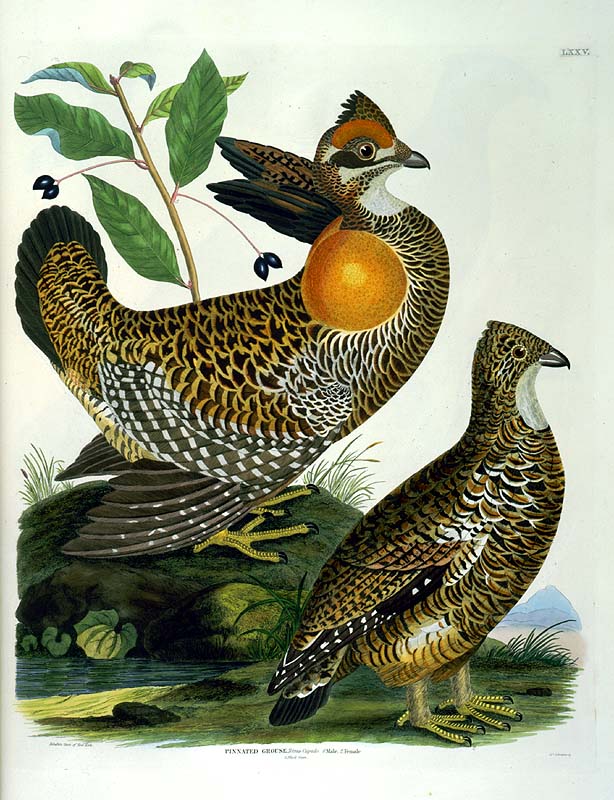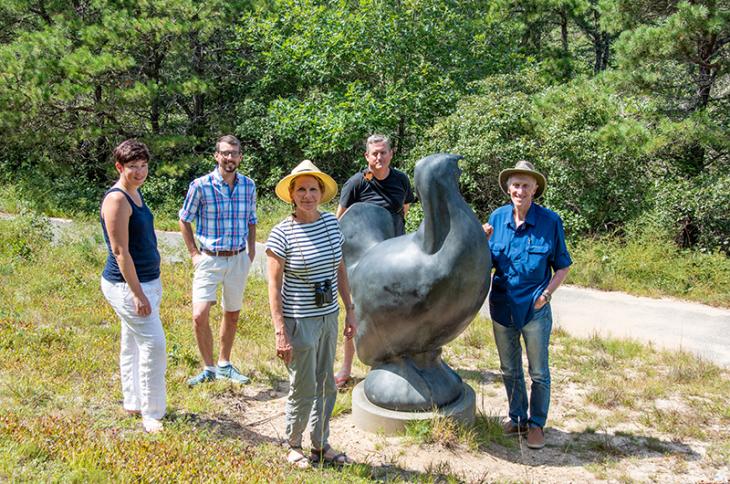
The world’s last heath hen went extinct in Martha’s Vineyard in 01932. The Revive & Restore team recently paid a visit there to discuss their efforts to bring the species back.

From the Vineyard Gazette:
Buried deep within the woods of the Manuel Correllus State Forest is a statue of Booming Ben, the world’s final heath hen. Once common all along the eastern seaboard, the species was hunted to near-extinction in the 1870s. Although a small number of the birds found refuge on Martha’s Vineyard, they officially disappeared in 1932 — with Booming Ben, the last of their kind, calling for female mates who were no longer there to hear him.
“There is no survivor, there is no future, there is no life to be recreated in this form again,” Gazette editor Henry Beetle Hough wrote. “We are looking upon the uttermost finality which can be written, glimpsing the darkness which will not know another ray of light. We are in touch with the reality of extinction.”
The statue memorializes that reality.
Since 2013, however, a group of cutting-edge researchers with the group Revive and Restore have been hard at work to bring back the heath hen as part of an ambitious avian de-extinction project. The project got started when Ryan Phelan, who co-founded Revive and Restore with her husband, scientist and publisher of the Whole Earth Catalogue, Stewart Brand, began to think broadly about the goals for their organization.
“We started by saying what’s the most wild idea possible?” Ms. Phelan said. “What’s the most audacious? That would be bringing back an extinct species.”
Read the piece in full here.